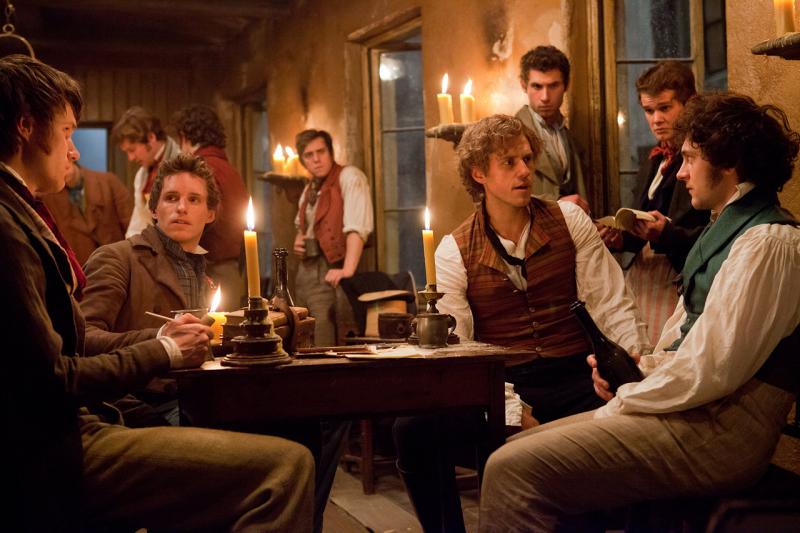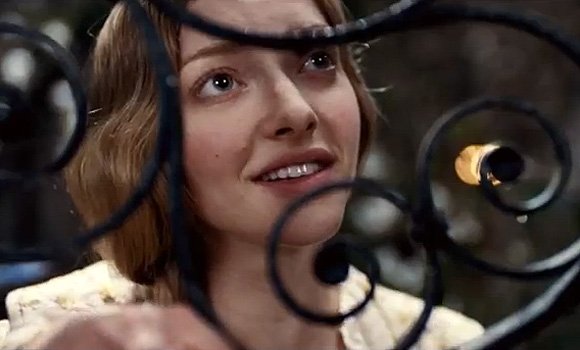Les Miserables Full Movie Part 1
No, It’s Not Actually the French Revolution: Les Misérables and History by Susanne Alleyn[Spoiler alert! If you don’t know the story of Les Misérables and want to see the film without already knowing a lot of plot points, including the ending, then stop right now.]I’ll be the first to admit that I am a shameless Les Mis fan. I’ve always loved the story, since seeing some movie version or other as a child.

I became a passionate fan of the stage musical back when it opened on Broadway in 1. I still had good intentions of going into show business, while already being well on the way to the history nerd and French Revolution geek that I am today. I nearly went to the open casting call they held in New York for the part of Eponine, but no, I really didn’t have the right kind of voice. I could have played Cosette, but that role was already cast . So eventually I became a writer instead, and made a career, of sorts, of my French Revolutionary geekdom, and quietly waited and yearned for someone, anyone, to make a grand, epic, over- the- top film of that grand, epic, over- the- top stage musical.
Finally they’ve done it, and (thank heavens) they got it right. Yes, I LOVED it, with a few minor quibbles. And today, if I read one more review or online discussion of the new movie of Les Mis which states that the story is about, or takes place in, or culminates in, “the French Revolution”—always meaning the 1. Les Mis absolutely isn’t about and doesn’t take place in—I think maybe I’ll man the barricades myself and start ranting. Crash course in French history forthwith for all new or potential Les Mis fans!
No, Les Misérables is not historical fiction about “the French Revolution.” Not the biggie, la grande révolution, 1. Parisians (not “peasants,” please) attacking the Bastille; Marie- Antoinette getting her head cut off; Madame Defarge knitting at the guillotine; and Napoleon somehow taking over at the end and cleaning up the mess. Les Misérables is, among many other things, about the legacy of the French Revolution. The uprising in the second half of Les Mis is no huge, nation- sized, world- shaking revolution like the 1. Parisian insurrection, a couple of days of street riots and resistance that did take place in June, 1.
· Book your tickets online for Les Miserables London, London: See 8,021 reviews, articles, and 648 photos of Les Miserables London, ranked No.1 on.

What's it all about? The West End's longest running musical, Les Miserables, continues to delight audiences at the Queen's Theatre and celebrated its 30th anniversary. Stage actor Jon Robyns (C), as Enjolras, performs 'Do You Hear The People Sing' during a photo rehearsal for Les Miserables at the Barbican Center in London, Britain. Les Miserables movie reviews & Metacritic score: A musical adaptation of Victor Hugo's classic novel about a recently-released prisoner named Jean Valjean st. Share this Rating. Title: Les Miserables (TV Movie 1978) 7.4 /10. Want to share IMDb's rating on your own site? Use the HTML below.
Victor Hugo witnessed it firsthand), and which was quickly and bloodily suppressed by government troops, just as it is in the novel/musical/film. And if you do your math (1. Les Mis is taking place a good 4. Revolution- with- a- capital- R is only a distant memory, for good or evil, in the minds of a very senior generation, people in their late fifties and above . Americans today. But for those seething, leftist, idealistic, twentysomething students in Les Mis, the 1. Revolution- with- a- capital- R is a glorious, if mightily flawed, piece of history that they’re looking back to and hoping they can revive—without it going sour this time.
Hugo, of course, was writing his historical novel for a French audience in the 1. But it’s all a bit more obscure 1. So, in order to know what, historically, is going on in, and—perhaps more important—leading up to Les Mis, here’s a quick and grossly oversimplified chronology of French history from 1. May to July: The French Revolution, la grande révolution, begins, with a political rebellion and then (symbolically) with the capture of the Bastille.
Over the next year or two the king—Louis XVI, well- meaning but something of a bumbler and a waffler—reluctantly accepts the reforms that are put into place and agrees to reign as a constitutional monarch. August: After three years of royal incompetence; royal waffling; political squabbling between progressives and hardline royalist conservatives; and discontent among the poor at how the Revolution turned out to be a lot more about Liberty than Equality, the French Revolution reaches a more radical phase.
The conservative constitutional monarchy is overthrown in a violent uprising and Louis XVI and Marie- Antoinette are imprisoned. September: The monarchy is officially abolished and France is declared a republic; the democratically elected National Convention becomes the ruling body. During the next year and a half, under the influence of some radical politicians, various laws are enacted or proposed, which attempt to spread the wealth around a little and improve the lives of the working poor. January: Louis XVI is executed, after being tried (for treason against the nation) by the National Convention. Committee of Public Safety, is formed to streamline the clunky workings of an inexperienced republican government that is running things mostly by trial and error.

With Gérard Depardieu, Christian Clavier, John Malkovich, Virginie Ledoyen. The scene is set during the French Restoration at the beginning of the 19th century. Jean. Download sheet music for Les Misérables. Choose from Les Misérables sheet music for such popular songs as On My Own, I Dreamed a Dream, and Bring Him Home. Print. A new behind-the-scenes clip from 'Les Misérables' features interviews with the cast discussing the benefits of singing live during filming.
Maximilien Robespierre joins the Committee in July 1. The Terror begins, in response to pressures within and without of foreign war and civil war. Watch Embrace Of The Vampire Online Metacritic. Not nearly as many people were guillotined during the Terror as you probably think, after reading The Scarlet Pimpernel or A Tale of Two Cities—see my previous post, “Propaganda, Clichés, and History.”)1. July: The Committee of Public Safety begins to fracture as its members divide along ideological lines and quarrel violently. Robespierre and his closest adherents are overthrown, and quickly guillotined, in what is essentially a palace coup. The Terror ends, mostly because the sleazy politicians who overthrew Robespierre realize it would be a very good idea to stop the bloody political purges right away so that they can blame them all on Robespierre, who is now dead and can’t refute the accusations.

The Committee of Public Safety and the National Convention continue to govern for another year. November: the National Convention and Committee of Public Safety disband and make way for a new, far less radical, governing body, the Directory. At this point a lot of the progressive laws enacted or proposed in 1. My, this is beginning to sound awfully familiar, isn’t it?)1. And finally, here, the backstory of Les Misérables begins—when Jean Valjean, to feed his sister’s starving children, steals a loaf of bread and is sent to prison. Hugo was clearly pointing out that, despite this episode taking place right after the Revolution, the poor were just as wretched as they had ever been—and the laws were just as brutal. The Directory runs things while a fair number of smart, unscrupulous opportunists get very, very rich, and the poor remain very, very poor.
In the end, nothing much has changed in ten years of shakeup, except that the ruling class is now made up of wealthy bourgeois profiteers and financiers instead of the blue- blooded hereditary nobility of the prerevolutionary regime. November: Napoleon Bonaparte, the hot young military superstar who’s just put down some minor uprisings in Paris and conquered Italy, decides that he can run things better than the politicians can, and that he doesn’t feel like taking their orders any more. A political coup ends with him as “First Consul” and head of the once again restructured government. Napoleon, still successfully governing France and taking over chunks of Europe, is declared Emperor of the French. Although it looks as though the government system is headed back toward a hereditary monarchy, Napoleon’s imperial rule is moderately progressive and sticks to many of the first basic reforms and advances of the Revolution. Unfortunately, he decides he’d like to conquer the rest of Europe, including Russia (very, very bad idea), and spread the revolutionary ideals around.



